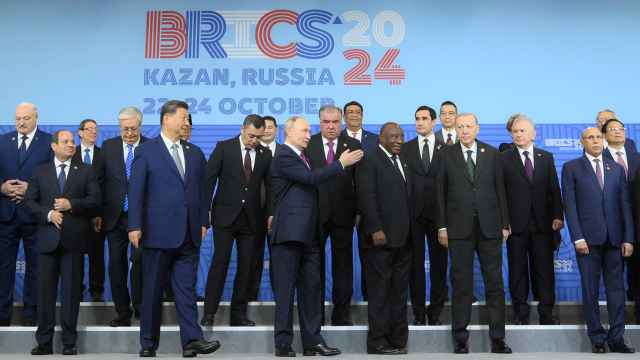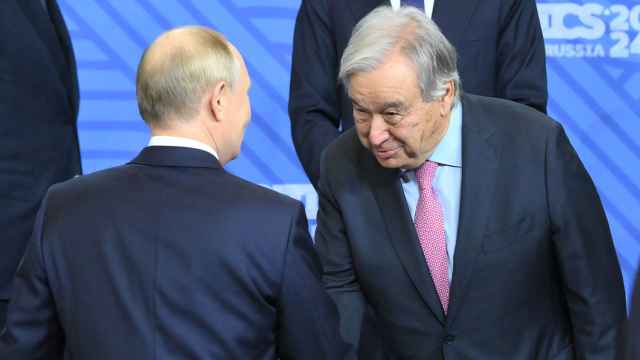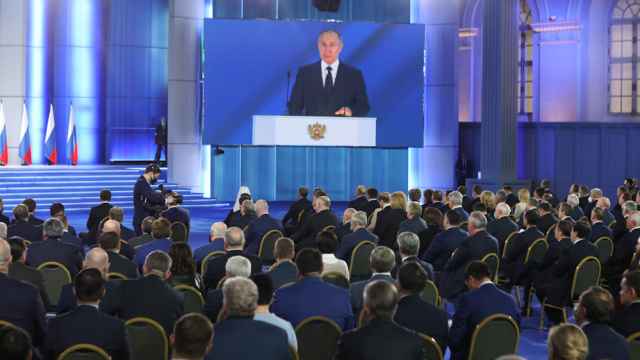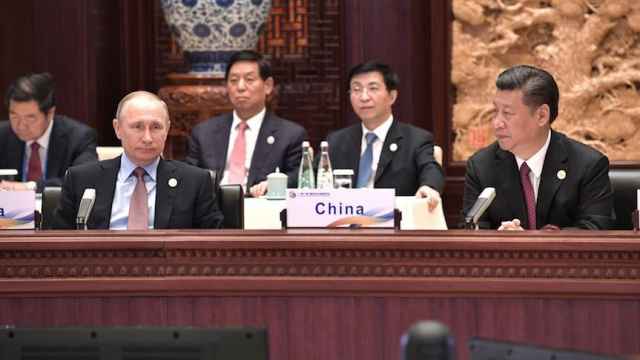The BRICS group of countries is driving global economic growth faster than advanced Western economies, Russian President Vladimir Putin said at the group’s business forum on Friday.
The five original members of BRICS — Brazil, Russia, India, China and South Africa — together with its four newcomers accounted for 37.4% of global GDP compared to 29.3% for G7 countries last year, Putin said as he predicted “the gap will inevitably widen.”
“The member countries of our association are in fact the drivers of global economic growth. And it’s in BRICS that the main growth of global GDP will be generated in the foreseeable future,” Putin said.
BRICS takes its name from the first letters of the five members who joined between 2009 and 2010. This year, the group expanded to include Egypt, Ethiopia, Iran and the United Arab Emirates.
Putin regularly casts BRICS as a geopolitical counterweight to Western power and influence, although not all of the group’s members, such as Brazil and India, share Moscow’s hard line on relations with the West.
The Kremlin has presented the expansion of BRICS as evidence of Western failure to isolate Russia with sanctions over its full-scale invasion of Ukraine. Two of the group’s largest members, China and India, have provided crucial economic lifelines for Moscow during the war.
During Friday’s BRICS business forum in Moscow, Putin touted the group’s plans for cross-border payments, transportation projects and the digital economy.
“In other words, BRICS members’ economic growth will depend less and less on outside influence or intervention in the future,” Putin said.
The Kremlin said the leaders of 24 countries would attend the BRICS summit in the Russian city of Kazan next week, including Chinese President Xi Jinping and Indian Prime Minister Narendra Modi.
A Message from The Moscow Times:
Dear readers,
We are facing unprecedented challenges. Russia's Prosecutor General's Office has designated The Moscow Times as an "undesirable" organization, criminalizing our work and putting our staff at risk of prosecution. This follows our earlier unjust labeling as a "foreign agent."
These actions are direct attempts to silence independent journalism in Russia. The authorities claim our work "discredits the decisions of the Russian leadership." We see things differently: we strive to provide accurate, unbiased reporting on Russia.
We, the journalists of The Moscow Times, refuse to be silenced. But to continue our work, we need your help.
Your support, no matter how small, makes a world of difference. If you can, please support us monthly starting from just $2. It's quick to set up, and every contribution makes a significant impact.
By supporting The Moscow Times, you're defending open, independent journalism in the face of repression. Thank you for standing with us.
Remind me later.






